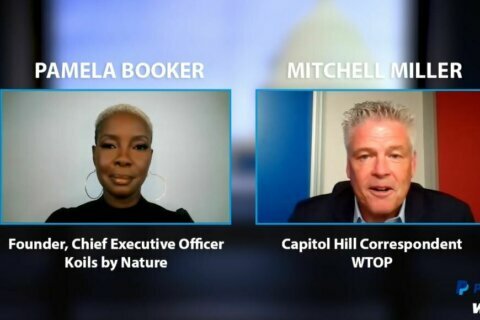“The world fundamentally changed for small businesses”
PayPal has played a key role in providing critical capital to countless small businesses during the pandemic, helping them navigate some of the most challenging times in the country’s history.
The company has also shown an unwavering commitment to minority entrepreneurs as they deal with the crisis, which has hit financially underserved areas especially hard.
That includes a pledge of $530 million to black and minority communities, which are dealing with a legacy of economic inequalities.
“Black lives matter and we need to drive transformative change,” said PayPal President and CEO Dan Schulman. “We must take decisive action to close the racial wealth gap that sustains this profound inequity.”
The funding includes $10 million that will be used to administer grants for black-owned businesses across the United States, that have been impacted by the pandemic or civil unrest. The fund is being managed in a partnership with the Association for Enterprise Opportunity, based in Washington.
In announcing the major financial commitment, Schulman noted the “deep-seated injustice and systemic economic inequality” black Americans have dealt with.
PayPal is also committing $15 million to strengthen its internal diversity and inclusion programs, which are involved in recruiting, hiring and career advancement of black and minority employees.
Long before the latest economic crisis, PayPal has been working with small businesses, which Schulman says are part of the “DNA” of his company. PayPal supports 25 million merchants and 300 million consumers on its platform.
Schulman says the current situation has led his company to help small businesses “rethink their entire strategy,” as they deal with a host of hurdles.
“As COVID-19 hit, the world fundamentally changed for small businesses and really for retail in general,” Schulman says.
“How do they continue going forward, when the world has shifted more and more towards digital, is something that we’re, I think, uniquely able to go and do,” he says.
Access to capital and serving the underserved
PayPal is one of the top five providers of working capital to small businesses in the country. Schulman says PayPal has lent about $15 billion of working capital to 300,000 small businesses in recent years.
Following passage of the CARES Act by Congress, Schulman says PayPal worked with lawmakers from both parties and became one of the first non-banks to provide through the Small Business Administration’s Paycheck Protection Program.
Soon after the legislation had passed, Schulman said PayPal had lent nearly $2 billion to nearly 60,000 small businesses through the program.
As a result, he estimates PayPal helped save more than 250,000 jobs. Schulman says his company has had a “great partnership” with the federal government, as it helps small businesses navigate their way through turbulent financial waters.
Schulman is also proud of PayPal’s continuing efforts to help underserved communities.
It was in June that PayPal first pledged more than a half-billion dollars to help black and minority communities, which have been rocked by COVID-19, as well as longtime issues linked to social inequality.
In announcing the major financial commitment, Schulman noted the “deep-seated injustice and systemic economic inequality black Americans have dealt with.”
The funding includes $10 million that will be used to administer grants for black-owned businesses across the United States, that have been impacted by the pandemic or civil unrest. The fund is being managed in a partnership with the Association for Enterprise Opportunity, based in Washington.
PayPal is also committing $15 million to strengthen its internal diversity and inclusion programs, which are involved in recruiting, hiring and career advancement of black and minority employees.
Schulman pointed out that a large share of PayPal’s loans go to underserved communities. About 70 percent of loans go to the 10 percent of U.S. counties where 10 or more banks have closed branches.
When those financial institutions leave, they create “banking deserts.”
“With technology, we’ve been able to serve these more, lower-income neighborhoods, these more vulnerable populations, with our working capital loans,” Schulman says.
“What really is a telling statistic is when we’re able to give working capital to one of these small businesses, on average, their sales go up by 22 percent,” he says.
“These are great businesses, they just need access to working capital to really thrive,” he notes, adding that can really make a difference for their neighborhoods.
Schulman says about 70 million Americans often work outside the traditional financial system and it’s estimated they spend $160 billion in unnecessarily high fees or high interest rates.
They often have to use check-cashing services that hit them up for 2 to 5 percent interest and then get socked with bill-paying fees.
Schulman says simply having a phone can effectively give you a bank branch in your hand.
“You can cut the costs of those transactions by anywhere between half and 80 percent,” he said.
He emphasizes that even cutting costs by 10 percent from that $160 billion could provide those underserved populations with an extra $16 billion,
The average loan that PayPal has provided has been just under $30,000, which compares to banks that are often lending between $100,000 and $200,000, on average.
“We really filled a need in how the government was trying to reach vulnerable populations and the smallest of businesses,” Schulman says.
What’s ahead?
Schulman says the pandemic has accelerated several trends that were underway.
“It was a health crisis, and still is, that cascaded into being an economic crisis…that also cascaded into a psychological crisis,” he says.
While state economies have been reopening, many Americans are still worried about their health. And that has a direct impact on small businesses and consumer behavior.
“The world has, in a discontinuous manner, moved more from physical to digital,” he says.
He notes that the pandemic may have accelerated that trend by two to five years.
“Retail has fundamentally changed,” he says. “You’re seeing so much more online ordering and delivery. Or online ordering and pickup in store. Much less shopping in a physical location.”
That’s lead to a continuous rise in digital payments. Given continuing health concerns, he says many consumers prefer touchless transactions.
Reasons for optimism
Given PayPal’s longtime work with small businesses, Schulman says he understands how resilient they are, in good times and bad. His company needs to be too.
“We try to be resilient, because the moment we stand still is the moment we start falling behind,” he says. “We always have to think about what the next iteration of our business is.”
The torrent of events this year has forced many companies to adjust and adapt.
“This multiplicity of crises that face us now, not just in our country but around the globe, is forcing us to think about strategies and how we compete going forward and probably forced us to hit the fast forward button on that,” Schulman says.
He says PayPal, like other businesses large and small, is working hard to make sure its employees are treated well, remain safe and maintain their financial – and physical — health.
Schulman is also encouraged by how people have reacted to help people dealing with financial hardships.
“We’re seeing an explosion of generosity through our Venmo and PayPal peer-to-peer giving platform,” donating to businesses, schools and places of worship.
He’s also proud of the hundreds of millions of dollars PayPal has put forward to help various organizations.
“I believe that the costs associated with helping your customers and helping your employees during times of crisis…pay back multiple fold, in terms of good will,” he says.
He’s seen a lot of other corporate leaders do the same, which gives him reasons for optimism.
“There’s a sense of, ‘We’re in this together’ and I really feel that,” he says. “I feel like PayPal has a responsibility to be all-in on this.”







